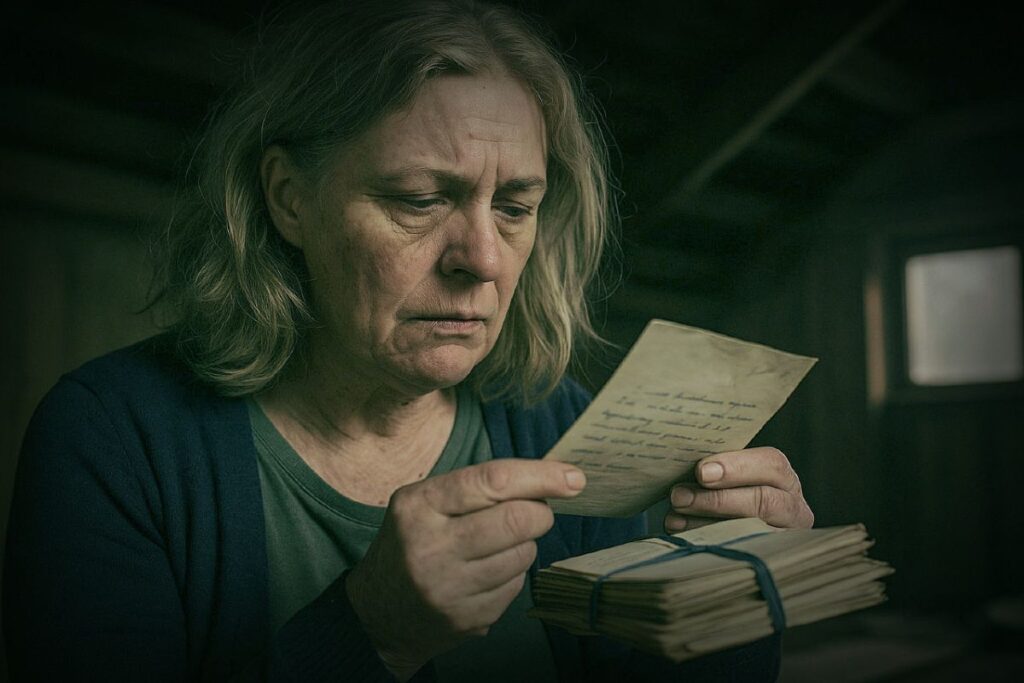📖 Part 4: Saying His Name
The drive to Fayetteville, Pennsylvania, took seven hours.
Elise left Lena with her cousin in Raleigh. She needed to do this alone — not because her daughter wouldn’t understand, but because this grief belonged to another version of herself. A version buried under years of silence.
She drove with the windows cracked and the letters in a manila envelope on the passenger seat, seatbelted like a precious relic. The box she left behind — but the words came with her.
The VA cemetery was quiet when she arrived. Rows upon rows of white headstones stood like sentinels beneath the gray sky. The wind tugged gently at her coat as she stepped from the car.
She walked with deliberate steps.
The number was in his last letter — Plot C, Row 14, Grave 223.
She found it between two tall pines.
Thomas R. Carson
1952–1976
U.S. Army – Vietnam
“Faithful Until the End”
The stone was simple. Worn with time. A few faded flags and plastic flowers marked neighboring graves, but his was bare.
Elise knelt and rested her fingers on the letters carved in granite.
She whispered, “I’m here.”
The wind answered back.
She reached into her coat pocket and pulled out the letter she had found — the one she wrote but never mailed. She unfolded it slowly, smoothing its creases with shaking hands.
And she read it aloud.
Every word. Every line. Voice cracking, eyes brimming, chest tight with the weight of time. And when she was done, she set the letter gently against the base of the stone and placed a rock atop it to hold it there.
Then she noticed something else.
Tucked behind the headstone, beneath a small cairn of pebbles, was an old, worn photograph — faded, rain-stained, but unmistakable.
It was her.
Seventeen-year-old Elise, smiling wide, sitting on the old swing in her backyard. Hair in a braid. Barefoot. The photo he had taken the day before he left for basic training.
He had kept it. Carried it. Brought it back with him from a war that had stolen everything else.
And someone — maybe the friend he’d mentioned — had placed it here, like a final act of devotion.
She traced the photo with her fingertip. It didn’t feel like a ghost anymore. It felt like something still alive.
She stayed there for hours.
Talking.
Laughing once, through tears, at the way he signed his letters with a tiny sketch of a tree — a private joke from high school. She told him about Lena. About how she still taught poetry. About the ache of learning what had been taken from both of them.
She told him what she wished she could’ve said when it mattered.
That she never forgot.
That she loved him still.
As dusk settled, she stood. Her knees ached. Her fingers were cold. But her chest, for the first time in decades, felt lighter.
Before leaving, she placed the photograph back in its place and whispered, “You made it home, Tom. I’m sorry I wasn’t waiting.”
Then she walked away — slowly, quietly — carrying with her something heavier than grief.
Love that survived silence.


